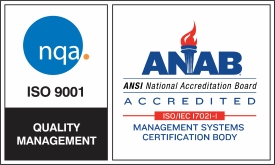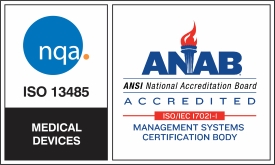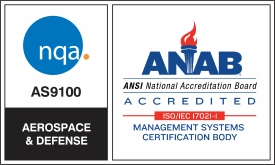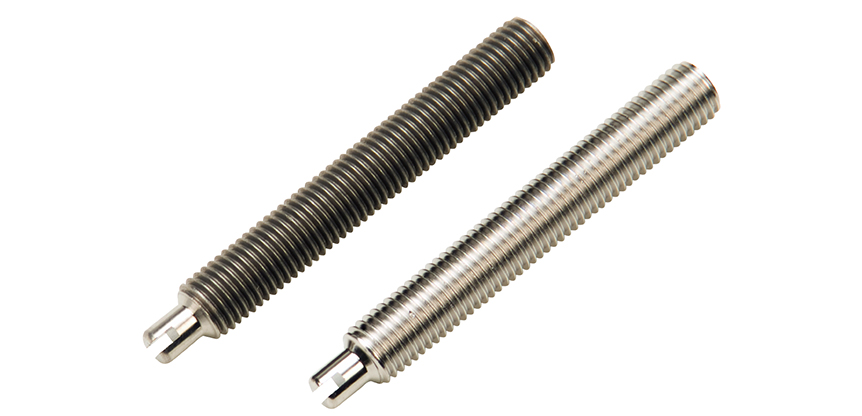
Titanium alloys are critical in industries requiring high strength-to-weight ratios and corrosion resistance, such as aerospace and medical technologies.
However, when titanium is exposed to high temperatures in the presence of oxygen, a phenomenon known as the "alpha case" can occur, which poses significant challenges to the integrity of titanium components.
What is Alpha Case?
Alpha case is an oxygen-enriched, hard, and brittle surface layer that forms on titanium alloys at temperatures exceeding 480°C/896°F.
This layer develops due to the absorption of oxygen, which diffuses into the titanium and alters its microstructure, drastically affecting its mechanical properties. The presence of alpha case can reduce tensile ductility and fatigue life, leading to the premature failure of components.
Impacts of Alpha Case on Mechanical Properties
The formation of alpha case in titanium significantly impacts several critical mechanical properties:

Reduced Tensile Ductility
The enriched oxygen makes the layer brittle, diminishing the material’s flexibility and durability.

Decreased Fatigue Resistance
Microcracks within the alpha case can lead to fatigue failure much earlier than expected in the component’s lifecycle.

Compromised Structural Integrity
The overall strength and durability of titanium are compromised, posing risks especially in applications where reliability is paramount, such as in aerospace components and medical implants.
Mitigation & Removal Techniques
Preventing or minimizing alpha case formation involves controlling the environment to limit oxygen exposure at high temperatures or utilizing a metal finishing process to remove the alpha case. Techniques include:
- Protective Atmospheres: Utilizing inert gases during high-temperature processes to shield titanium from oxygen
- Low-Temperature Processing: Adjusting processing temperatures to minimize the risk of oxygen absorption
- Surface Treatment: Once formed, the alpha case can be removed by machining or metal finishing techniques such as electropolishing
Electropolishing as a Solution
As a premier metal finishing method, electropolishing is highly effective at removing alpha case. Combining a chemical bath and an electrical current to gently remove a precise layer of metal from the part's surface, electropolishing not only removes the brittle layer but leaves the surface polished, improving the part’s aesthetic and functional properties:
Precision Material Removal
Able Electropolishing can selectively remove up to 0.001” of surface material, and can precisely control the amount of material removed to +/- .0001”.
Microfinish Improvement
The process enhances surface smoothness, reducing the Ra (Roughness Average) by up to 50% — especially important for high-performance applications.
Deburring
Electropolishing is highly effective at removing burrs, often left on metal parts after machining. Removing these burrs is essential for preventing part misalignment, mechanical failure, and crevices that could trap moisture and pathogens.
Fatigue Life Improvement
By removing surface defects, electropolishing significantly improves the fatigue life of metal components. This is particularly beneficial for parts subjected to cyclic stress, where premature failure could occur due to fatigue.
Enhanced Corrosion Resistance
Electropolishing greatly improves corrosion resistance for parts made of titanium and other alloys. The smoother surface reduces the areas where corrosive agents can accumulate, and the process leaves a passive layer on metals like titanium and stainless steel, further protecting against environmental stress.
Electropolishing for Biocompatibility in Medical Manufacturing
For medical implants, removing alpha case through electropolishing is crucial not only for structural integrity but also for ensuring the biocompatibility of the titanium. The smoother surface reduces the risk of bacterial colonization and improves the material's performance in biological environments.
The electropolishing process can be precisely controlled to achieve the desired surface finish and tolerances, not only removing the alpha case but enhancing the natural corrosion resistance of the material by producing a clean, smooth, and passive surface.
Electropolishing for Alpha Case
The right electropolishing technique not only resolves surface imperfections but also contributes to the longevity and safety of the parts in their respective applications. It's crucial to select an electropolishing provider that adheres to rigorous standards like ASTM F86.
Able’s team of expert electropolishers brings decades of experience in titanium finishing. We work closely with your team from prototype to finished product to ensure the highest quality and compliance with your specifications. Download our Medical Technical Guide or speak to an electropolishing expert to learn more about our services.
Contact us to learn more about electropolishing for alpha case layer




